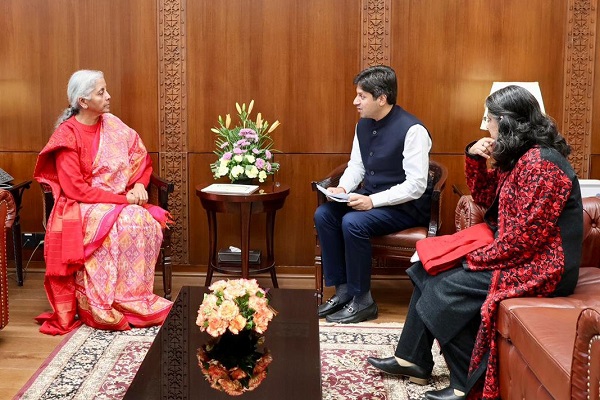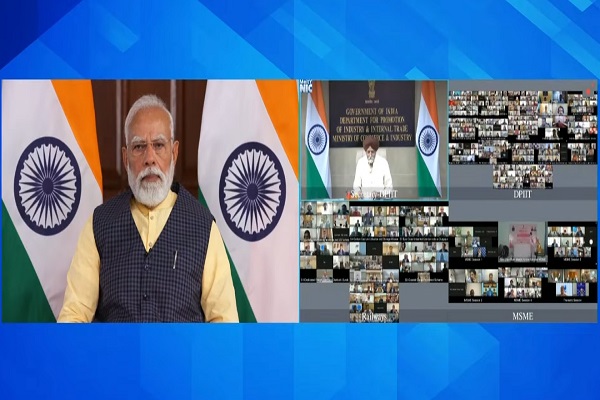The Chagos Agreement: Economic Impact on Mauritius by CareEdge Ratings

Introduction
The Agreement on the Chagos was signed on the 22nd of May 2025. This agreement is significant in recovering Mauritius's sovereignty rights over the Chagos Archipelago. It also has a strong impact on Mauritius's economic perspectives. First and foremost, the agreement signals a new era of geoeconomic relations, reinforcing Mauritius’s economic ties with the United Kingdom, the United States, and India. The involvement of these major powers in brokering the deal is expected to foster greater trade, investment, and business cooperation between Mauritius and these key partners.
Direct Foreign Currency Inflows
Annual Lease Payments: Mauritius will receive GBP 101 million (approx. USD 137 million) annually from the UK for the Diego Garcia military base lease, with payments adjusted for inflation after the first 13 years. This provides a stable, long-term inflow of foreign currency, directly enhancing the country's foreign exchange reserves.
Upfront Payments: The UK will contribute GBP 165 million (approx. USD 223 million) annually for the first three years, providing an immediate liquidity boost to Mauritius's balance of payments.
This direct foreign currency inflow will also be likely to have a positive impact on the Mauritian Rupee (MUR). The exact impact is hard to predict, but this will likely lead to a stronger MUR and help the economy, as inflation has eroded purchasing power. However, it may also mean lower export revenues in MUR terms.
As per the Ministry of Finance, as on March 31, 2025, total external debt was MUR 122 billion (provisional) which when translated at an exchange rate of USD 1=MUR 46, will be around USD 2.7 billion. An annual inflow of USD 223 million for first 3 years and USD 137 million, thereafter, could help part reduction of external debt.
Budget FY26 (FY2025/26)
Looking at the fiscal outlook for FY26, the national budget is set to benefit substantially from the Chagos Agreement. Budget revenue is projected to increase by approximately MUR 10 billion for FY26. This increase represents 1.4% of GDP, providing a much-needed economic boost. The fiscal deficit is also estimated to decrease as a result of the Chagos Agreement. The borrowing requirement is also projected to decline, reflecting improved fiscal health and reduced pressure on public finances.
Grants and Trust Funds
Mauritius stands to benefit from grants and trust funds associated with the agreement. The UK has pledged grant funding for strategic projects in Mauritius, providing non-repayable foreign currency inflows. These amounts are currently unknown but are likely to impact the Mauritian Economy positively.
Additionally, establishing a GBP 40 million Chagossian Trust Fund could see these resources invested internationally, generating further returns in foreign currencies. Collectively, these developments will contribute to a stronger foreign exchange position for Mauritius, support economic diversification, and enhance the country’s long-term growth prospects.
Long-term Benefits
Expanded Export Revenue
The Chagos Agreement secures direct lease payments for Mauritius and unlocks expansive new economic opportunities, particularly through control of a 2.3 million square kilometer exclusive economic zone (EEZ). This vast maritime territory allows Mauritius to license international fishing fleets, especially for lucrative tuna operations, and to expand seafood exports. These activities are expected to generate substantial foreign exchange earnings, particularly in USD and EUR. Additionally, sustainable harvesting of marine biodiversity, such as pharmaceuticals or cosmetics, can attract further foreign investment and export revenues, diversifying Mauritius’s economic base.
Tourism Growth
Tourism is another sector poised for growth as a result of the agreement. The pristine Chagos atoll, largely untouched by mass tourism, have the potential to attract high-end eco-tourists and scientific expeditions, bringing in foreign currency from visitors using USD, EUR, and GBP. While Mauritius already earns approximately USD 1.6 billion annually from tourism, careful and sustainable development of Chagos could increase this figure as these gains materialize gradually.
Foreign Direct Investment (FDI)
Foreign direct investment (FDI) is also likely to receive a boost. The deal enhances Mauritius’s geopolitical profile, making it a more attractive destination for strategic partnerships. There will be opportunities to develop new infrastructure on the islands, such as port facilities, and to explore renewable energy projects like offshore wind or solar farms as the EEZ is developed. These prospects may appeal to investors from Europe, India, and other Asian economies. Furthermore, Mauritius’s established role as a gateway for FDI into Africa and India could be strengthened, with the increased confidence brought by the Chagos deal encouraging more international capital flows.
Above views are of the author and not of the website kindly read disclaimer
























